Co-curricular activities are an important part of a child’s school life. Co-curricular – or extra-curricular – refers to non-academic programs or learning experiences that help develop and foster young minds and bodies outside a typical classroom. Whether this is Debating and Public Speaking, Drama, Chess or Cadets – co-curricular programs play a significant role in your son’s personal and academic growth.
Understanding where your son’s interests and strengths lie becomes more apparent as they develop. For some, a combination of interests may intersect within one particular co-curricular area. For example, to explore your child’s interest in history, drama and an affinity with writing, perhaps consider film and media options. If your son has an interest in music, though enjoys performance element more than studying, perhaps Pipes and Drums is an avenue to explore.
What kinds of co-curricular activities are there?
There are many pathways students can take which opens them up to new and exciting opportunities, as well as drawing on already determined interests and strengths. Here are some of the ways Co-Curricular activities offered at The Scots College can enhance your son’s development:
Art
- Improves motor skills
- Develops problem-solving skills
- Encourages self-expression
- Encourages creativity
- Encourages acceptance of others.
Cadets
- Teaches discipline
- Builds overall strength
- Improves reflexes
- Teaches teamwork.
Drama
- Improves language skills
- Teaches empathy
- Helps develop a moral sense
- Improves long-term memory
- Develops public speaking abilities.
Community Service
- Improves social awareness
- Improves critical thinking
- Encourages sustainable life choices
- Encourages creativity
- Promotes self-awareness.
Music
- Improves coordination
- Encourages concentration
- Develops patience
- Improves self-confidence
- Helps in relaxation of mind and body.
STEAM (Science, Technology, Engineering, Arts and Mathematics)
- Develop hypothesising skills
- Encourages communication skills
- Improves creative problem solving
- Promotes self-understanding
- Encourages collaborative action.
The seven key elements that are reinforced across all co-curricular areas of study are:
- Leadership
- Communication
- Performance
- Creativity
- Decision-making
- Cooperation
- Service
How to choose the right co-curricular activity?
A choice in co-curricular programs provides students with a new place to learn, topic to explore and ultimately, a place to shine. The following five steps should help guide you and your son in making the most appropriate decision:
1. Brainstorm
What are your child’s interests? Is there something that they have always wanted to try but haven’t had the time or capacity to explore? Just remember that the selection should reflect an area your son will enjoy and be engaged in.
2. Match
Take the time to find out how your child can be challenged and supported in their interests across a variety of contexts. If music is an interest, and the choice is between private tuition, joining a band, becoming part of the orchestra or joining the school’s next musical, focus on which area your child will be able to explore their personality and enhance their character, the most.
3. Research
Choosing the right co-curricular activity involves research. Try to ensure, if possible, to enrol your child into something local, either at school or a local club or group, where there is a community they can engage with, in addition to the activity itself.
4. Take action
This is the most important step – it’s the doing. But how many extra-curricular activities should your child do? And how often? In the early stages of development, the idea is to get a sample. Once you have formed an idea of which activities are really going to help develop the key areas you and your child values, you can dedicate more time to those, and drop the others.
5. Impact
Remember not to spread your child too thin. It is important to have a significant and impactful time in each activity. In other words, evaluate what has the best return on investment, and optimise time towards those activities, instead of the others.
With this in mind, it could be said that there is no right or wrong choice in the end and simply to trust in the learning experience of the activity. However, parental support is essential in assisting your son weigh up choices that will help develop his character, give him a strong sense of identity and fuel his passion for learning.
For more insight into the co-curricular offerings at Scots and to stay in touch with school news, sign up to our e-newsletter.






